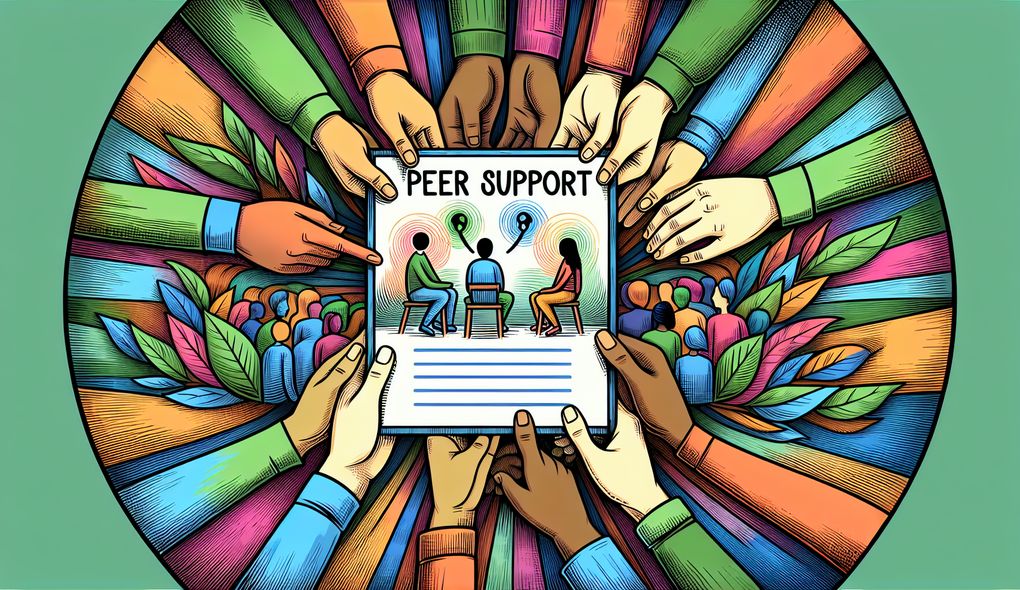Tell us about a time when you had to adapt your approach to meet the specific needs and preferences of a client.
INTERMEDIATE LEVEL

Sample answer to the question:
In my previous role as a Peer Support Specialist, I had a client who preferred a more hands-on approach to their recovery journey. They wanted more guidance and structure in setting and achieving their goals. Initially, I had been using a more self-directed approach, allowing clients to take control of their own recovery. However, to meet this client's specific needs and preferences, I adapted my approach by providing more direct guidance and support. I developed a structured plan with clear milestones and regularly checked in with the client to track their progress. This approach allowed the client to feel more supported and motivated throughout their recovery journey.
Here is a more solid answer:
In my previous role as a Peer Support Specialist, I had a client who preferred a more hands-on approach to their recovery journey. They wanted more guidance and structure in setting and achieving their goals. Initially, I had been using a more self-directed approach, allowing clients to take control of their own recovery. However, to meet this client's specific needs and preferences, I adapted my approach by providing more direct guidance and support. I sat down with the client and discussed their goals in detail, helping them break them down into smaller actionable steps. I developed a structured plan with clear milestones and regularly checked in with the client to track their progress. I also provided additional resources and educational materials to enhance their understanding of their condition. This approach allowed the client to feel more supported and motivated throughout their recovery journey. The client reported feeling more empowered and confident in their ability to achieve their goals. This experience taught me the importance of being flexible and adaptable in my approach to meet the unique needs of each individual client.
Why is this a more solid answer?
The solid answer provides specific examples of how the candidate adapted their approach by sitting down with the client, breaking down their goals, and providing additional resources. It also mentions the positive outcome of the adaptation, with the client feeling more supported and motivated. However, it could further improve by mentioning any challenges faced during the adaptation process and how they were overcome.
An example of a exceptional answer:
In my previous role as a Peer Support Specialist, I had a client who preferred a more hands-on and structured approach to their recovery journey. They had a strong desire to learn and understand their condition better, and they needed more guidance and support in setting and achieving their goals. To adapt my approach to meet their specific needs and preferences, I took the following steps: First, I scheduled a longer session with the client to discuss their goals in detail. I actively listened to their concerns, validated their experiences, and identified the areas where they needed more support. Together, we broke down their long-term goals into manageable short-term objectives. I provided them with educational resources, articles, and videos to enhance their understanding of their condition and the recovery process. Additionally, I tailored our one-on-one sessions to include more psychoeducation, where I explained different coping strategies, self-care techniques, and community resources available to them. I also facilitated group sessions where the client could connect with others who shared similar experiences. Throughout the process, I maintained open and transparent communication with the client, regularly checking in on their progress and adjusting the level of support as needed. The client reported feeling more empowered, informed, and motivated throughout their recovery journey, and they successfully achieved their goals. This experience taught me the importance of flexibility and adaptability in meeting the unique needs of each client, and the positive impact it can have on their overall wellness.
Why is this an exceptional answer?
The exceptional answer provides even more specific details about the steps taken to adapt the candidate's approach, such as scheduling a longer session, providing educational resources, and tailoring one-on-one sessions. It also mentions the client's positive outcome of feeling empowered, informed, and motivated, and successfully achieving their goals. The answer demonstrates a deep understanding of the importance of flexibility and adaptability in meeting client needs. However, it could still improve by mentioning any challenges faced during the adaptation process and how they were overcome.
How to prepare for this question:
- Reflect on past experiences where you had to adapt your approach to meet the needs and preferences of a client.
- Think about the specific steps you took to accommodate their needs and how it impacted their experience.
- Consider any challenges you faced during the adaptation process and how you overcame them.
- Highlight your ability to listen actively and empathize with clients to better understand their unique needs and concerns.
- Demonstrate your knowledge of available resources and your ability to tailor your approach to each client's specific situation.
What are interviewers evaluating with this question?
- Interpersonal and communication skills
- Ability to empathize with clients and build trust
- Ability to work independently and as a part of a multidisciplinary team
- Ability to handle sensitive information with discretion and empathy

